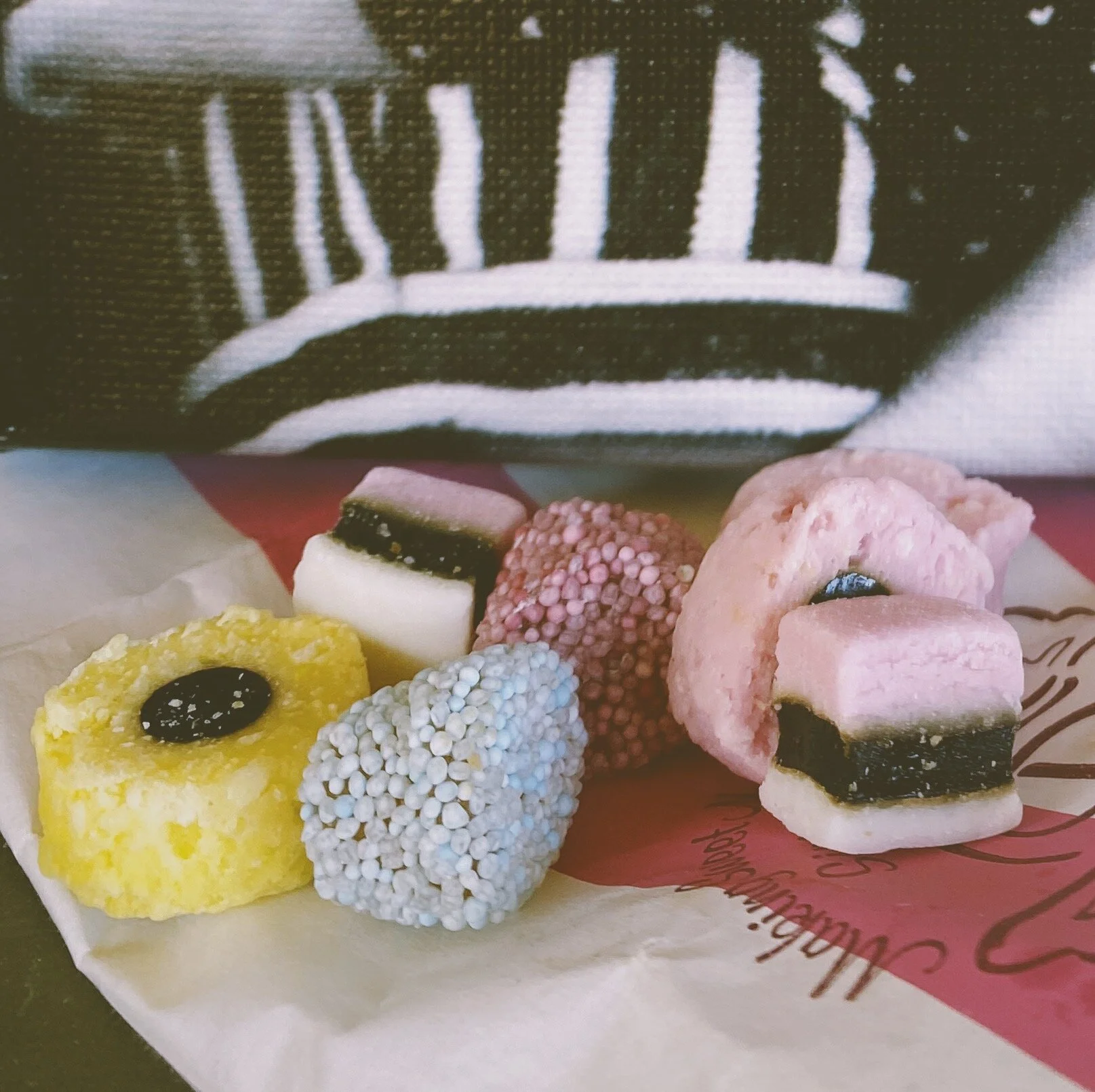I'm Just Not Following
A scrillion days of quarantine and distancing, a traumatizing election cycle, a procession of terrific natural disasters Biblical in proportion, a pandemic turned endemic — the discontents of 2020 and 2021 have been many, and they’ve left many of us careworn, depressed, and with nowhere to turn for succor and companionship but a glowing smartphone screen.
The Internet is lately buzzing about the perils of a concurrent rise in “doomscrolling” — in which a media user compulsive seeks out negative content that confirms their view of the world as a shit place and thus becomes further depressed and negative.
I’ve done my fair share of doomscrolling this year, and it does satisfy an existential itch, but you can only peruse the parade of horribles for so long before you get antsy and start searching for other ways to horrify yourself.
My own digital ennui recently led me to undertake a dreadfully illuminating project of comparison on Instagram — my social media platform of choice.
I was focused on my personal account (as opposed to my writing-and-creativity-related account), and the animating question was simple: Why was I following so many more people on Instagram than were following me?
I decided to investigate, with an eye for paring down.
At first, the pruning was straightforward: random famous people, products I found titillating but would honestly never buy (a rug made to look like a three-dimensional vortex, a three-tentacled smartphone holder, a data-erasing roller stamp), 10 different photographers snapping essentially identical photos of Iceland. Unfollow, unfollow, unfollow.
When I got to under 900 accounts, though, I slowed my roll: I personally knew and considered a vast majority of these remaining folks to be “Friends.”
As in, people I knew from real life — mostly folks from high school and college and grad school.
But how could this be, when only 417 people were following me?
I quickly discovered, to my surprise, that a notable number of my real-life acquaintances were not following me back.
I was instantly mortified.
Where had I gone wrong?
I audited the contents of my feed in search of answers.
I’ve been posting consistently on my personal Instagram for nearly a decade, and I’m a photographer focused on documenting life’s aesthetically pleasing mundanities: dew-specked leaves, candid shots of my daughter’s progression into girlhood and the recent arrival of a second child, kitchen spills and cooking adventures, (pre-Covid) scenic international destinations — crowd-pleasing kind of fodder.
Politics seep into my feed, occasionally, as do overly-confessional mental health posts which I sometimes later regret, but mostly, I’m curating a breezy, optimistic grid of aesthetically pleasing enjoyables.
My feed is the digital equivalent of a bag of licorice allsorts: Sweet, colorful, perhaps occasionally cloying, but with a little something to offer everyone.
So what gave?
Social media haters (like my husband) constantly warn us that the people we’re connected to via digital platforms aren’t actually, necessarily our “friends,” even if we know them in real-life.
If you don’t have contact with them in the flesh, the caution goes, the connection isn’t genuine.
But I refused to believe it. Of course these connections were real!
They felt real, at least. In following these old friends and schoolmates, I gained intimate access to their living rooms, their workspaces, their kitchens and their bookshelves. I knew their children by name and temperament, and I could clock the changing seasons in their part of the world by their rotating wardrobes of summer dresses and knit hats.
I liked and I commented and encouraged and commiserated, and it felt good to be invited in — until that fateful afternoon when I realized the feeling was not exactly mutual.
An essay like this one is embarrassing to write, of course.
I suppose I could run a deeper diagnostic on myself to try and sort out why on earth I care so very much.
I could tell you that all my life, I’ve felt relegated to the sidelines.
I could confess to terminal shyness as a child and tell you how my first-grade teacher told my mother that my chin was jammed so far into my chest that she half-expected it to pop out my back.
I’ve always longed to be invisible, yet I’ve always also hated being invisible.
I could also confide that this dualism and its accompanying sense of perpetual displacement persisted into adulthood and tell you about how a few years ago, someone literally sat on me on a park bench because they “hadn’t noticed” that I was there. Seriously! That happened.
And this whole Instagram fiasco kinda feels like that did – embarrassing, undignified, and wholly puzzling.
I could whinge over the fact that my absence wasn’t remarkable enough to have even been noticed.
Waaaah.
But if I did any of those things, I’d sound way too much like the needy, self-absorbed middle child I am. The shy one, the passed-over one, the one so desperately in need of social validation that I’d write an entire essay bemoaning these (likely) fully unintentional social media slights. And from the looks of things, I don’t have a lot of room to further devalue my social currency.
So whatever. Forget it. Let’s focus on the concrete.
I’ve thought about it a bit, and two explanations for the Instagram disparity feel possible.
Option One: These are simple oversights. These folks do like me, and somehow just haven’t noticed my absence from their feeds, or connected my regular likes and comments to the fact that they never see any of my own posts. And I need to get over it.
Option Two: These are not oversights, and these people are, for whatever reason, not interested in my life or my intimate friendship. Which, again, might not be personal, and I still probably need to get over it.
As for Option One, it just doesn’t feel … likely. The Instagram Mystery Algorithm constantly presents me with a carousel of People I Might Know and aggressively encourages me to follow them (or follow them back). So insistent on parity is Instagram that it has lately been compulsively suggesting I follow a former roommate who died in a plane crash last summer.
If I am being heckled this incessantly to complete circles of social media kinship, even with the departed, weren’t these other people being heckled, too, but with my own picture?
Probably. So Option Two is my working thesis.
Which brings me back to my original question: Where the hell did I go wrong?
I honestly don’t think anything about my online persona is controversial enough to be seriously off-putting. I try not to humblebrag or act like a jerk. I share personal failures as well as successes and document plates of food I spill all over the floor just as often as I post photos of perfectly executed gluten-free baking endeavors.
Here’s what I think is really going on: the disconnect is a symptom of the deep narcissism of social media in general: people tend to overestimate their own interestingness and therefore fail to engage in a balanced ratio of social media tit-for-tat.
Our kids are the cleverest, our meals are the prettiest, our vacations are the most photogenic. If we show little interest in the feeds of others, well, that doesn’t detract from our own deep interestingness, does it?
Except it does detract. For me, it detracts a lot. Because isn’t mutualism part of the tacit agreement?
I’ve curated my life into a colorful baggie of licorice allsorts, and not everybody likes every flavor of all-sorts. I get that. But shouldn’t something in there appeal? Even if I don’t always achieve the perfect proportions of a crowd-pleasing petite four, I’m at least dependably a licorice pastel or one of those coconut things. I’m certainly not the aniseed jelly buttons everyone hates.
Am I?
I have to wonder if the social media haters (again, like my husband) got this one right: the roster of thumbnail faces that pops up to greet me each time I open up Instagram isn’t a list of my actual friends. Nothing like it, and I need to conduct myself accordingly.
In real life, I’d certainly have taken note if a “friend” failed to return my phone calls for a decade straight or if they prattled on about their children and their job promotions and never once stopped to enquire if I even had a job or any kids myself.
I’d have taken note, and I’d have canceled them from my life.
But social media covers up a multitude of bad social acts we’d find unacceptable in the analogue world: talking too much, listening too little, falling far short of the fluid dance of reciprocity that maintaining an analogue human friendship requires.
For being such fundamentally social creatures, it’s amazing how often we humans get reciprocity dead wrong.
Lopsided friendships, feuding cubiclemates, festering familial resentments, road rage, run-of-the-mill low-grade social resentment.
We all agree that we need each other desperately — but achieving consensus on what we specifically owe one other? That feels impossible.
How much of your life have you spent feeling jilted, dissed, used and underappreciated? If you’re like me, it can be tallied in weeks or years rather than hours or minutes.
And how many of these rifts have ever been solved in a way that feels just or at least satisfying?
If you’re like me, the number of successful resolutions is modest at best.
Our ongoing dissatisfaction with one another drives us in lasting ways, and might explain more about our behaviors — and the motivations underscoring them — than we’d ever dare to admit in polite company.
It’s hard to get the inherent mutualism of human relationships just right, and when things fall afoul, setting them straight again can feel nearly impossible.
Social media is shot through with a narcissism so casual, it can go completely unnoticed. And a surprising amount of paranoid digging is required to figure out which relationships actually go both ways.
You might scroll for years on Instagram, liking and commenting away in happy delusion before you realize that the girl from high school who bakes beautiful berry scones to feed to her perfect freckled children doesn’t actually give a rip about your own baking or your own cute offspring.
But when you spot that narcissism’s doomy contours, you can’t unsee them. You must act.
I’m done feeling like the gummy licorice refuse at the bottom of the digital bag.
Is social media reciprocity really ever owed? Yeah, I think it kinda is. It’s just as important to be interested as it is to be interesting, people! If we can lift each other up, we are obliged to do so. We’re honor-bound to give as good as we get when it comes to engaging with others in the non-professional digital space.
Comments or likes back are certainly never obligatory, but if you spend 95% of your time on any given platform staring self-indulgently at your own grid, then you’re missing out.
People are playing close attention not just to you but also to how you treat them! What are they getting back from you beyond the pleasure of your virtual company on your own terms, your own page, your own site?
And if you can’t manage to be deeply interested in the lives of others, well, fake it! You might learn something, and even if you don’t, you’ll make a lot more actual-real friends. And wasn’t that the point of this whole thing way back when? Getting back to that simpler time?
I, for one, liked that world a whole lot more.





